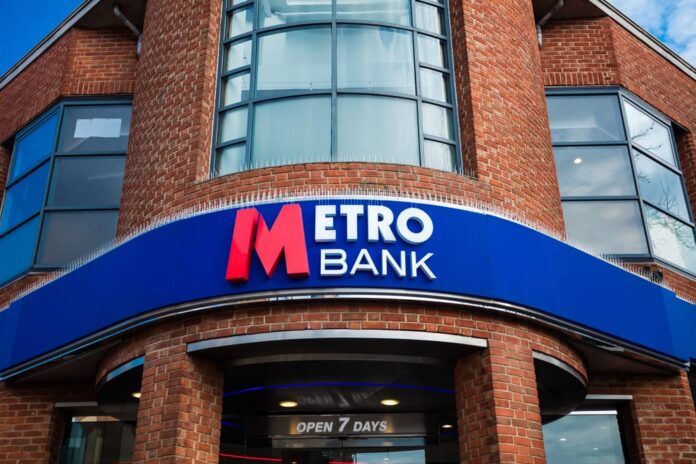Metro Bank, the pioneering challenger bank in the UK, has got a takeover offer headed by a private equity house Pollen Street Capital. The possible takeover marks a new era in the life of the bank which has been struggling with financial instability over the years and currently undergoing strategic revival. The bid may result in Metro Bank being acquired privately and delisted off the London Stock Exchange.
A New Offer By the Pollen Street Capital
The acquiring strategy is that of Pollen Street Capital, a private equity firm specialising in financial services in which it also has a major shareholding in Shawbrook Bank. Shawbrook had already discussed the option of a merger with Metro Bank in previous years, though nothing came of the talks. In the recent past, Shawbrook also entered into early merger discussions with Starling Bank as well as a potential public listing. It is probably the stabilizing financial situation and the increasing share price that have generated renewed interest in Metro Bank.
The Unique Origins and Business Model of Metro Bank
Metro Bank, established in 2009 and opening its first branch in 2010, is the first new high street bank in the UK in over a hundred years. It was designed in a highly retail-oriented manner, and it was meant to redesign the customer banking experience. It stood out through its physical branch model which was open every day of the week and had amenities like dog biscuits and coin-counting machines. But that very physical-heavy strategy later turned into an expensive burden when digital-first companies started to take over the market.
Also read: Trump Deploys National Guard to Los Angeles Amid Protests
Struggles with Solvency and Turnaround Efforts
Metro Bank came close to collapse in 2023. A financial rescue was orchestrated through a £925 million recapitalization package, which included £325 million in equity and £600 million in debt. Colombian billionaire Jaime Gilinski Bacal contributed a significant portion of the funding and now owns around 53 percent of the company through his firm Spaldy Investments. He also serves on Metro Bank’s board, playing a central role in its future direction.
Under CEO Daniel Frumkin, the bank has undertaken significant restructuring. This includes cutting hundreds of jobs, divesting from certain loan portfolios, and focusing on more profitable lending segments. Frumkin also emphasized improving Metro Bank’s net interest margin by adjusting its asset mix and keeping tight control on costs.
Market Response and Operational Recovery
Thanks to these recovery efforts, Metro Bank has seen a sharp turnaround in market confidence. Its shares have more than tripled over the last year, pushing its market capitalization to over £750 million. While this is a significant rebound, it remains well below the bank’s peak valuation of £3.5 billion in 2018. Operationally, the bank has gained traction, with 30,000 new current accounts opened in the last quarter and an uptick in commercial lending. Frumkin has pointed to the bank’s relationship-based service and wide product offering as key competitive advantages.
Regulatory Challenges and Public Perception
Despite recent gains, Metro Bank’s history includes several serious challenges. It has faced multiple fines from financial regulators, including a £10 million penalty from the Financial Conduct Authority and a £5.4 million fine from the Prudential Regulation Authority for past errors in reporting. In 2019, the bank suffered a blow to its reputation when rumors of financial instability sparked customer queues at branches. Although a £350 million emergency share issue quickly followed, the episode highlighted ongoing concerns about its resilience.
Governance and Executive Compensation Controversy
Last month, Metro Bank narrowly avoided a shareholder rebellion over executive pay. A controversial proposal allowed for executive compensation packages that could reach up to £60 million per executive. The proposal passed, allowing the current leadership to maintain its focus on strategic recovery, though the issue continues to draw scrutiny from governance experts and investors alike.
Looking Ahead
Metro Bank and Pollen Street Capital have both declined to publicly comment on the takeover discussions. However, this development highlights broader trends in the UK banking sector, including consolidation, rising private equity interest, and a push for digital transformation. If the deal goes forward, it could reshape Metro Bank’s future and mark a significant chapter in the ongoing evolution of high street banking in the UK.








